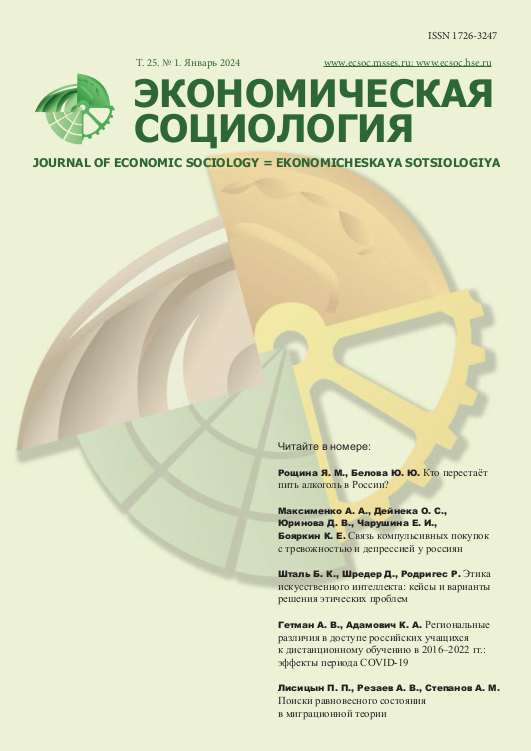Correlations of Compulsive Shopping with Anxiety and Depression in Russia
Abstract
The article is devoted to compulsive behavior among Russians during the period of economic sanctions. It argues that, unlike impulsive, compulsive purchases include not only and not so much purchases from the category of goods from the "checkout zone" of supermarkets, but also various manifestations of obsessive and auto-therapeutic consumption. The aim of the study was to search for correlations between the propensity to compulsive purchases with the severity of depression and the level of anxiety. 524 individuals (men 47%, women 53%, the average age of the respondents, M = 45 years) took part in an online research using the services anketolog.ru and yandex.toloka.ru. The following methods were used: "The scale of compulsive purchases" (E. Edwards), the Russian version of the "New scale of monetary behavior" by A. Furnham and S. Grover (adapted by T. A. Nestik, M. A. Gagarina), "The scale of depression, anxiety and stress" (DASS-21) and "The scale of sensitivity to anxiety" (ASI-3), and demographic indicators are also taken into account. The results of the survey showed that the tendency to compulsive purchases was associated with the age and gender of the respondents, as well as with their level of income and degree of religiosity. An analysis of the links between compulsive purchases, depression, anxiety and stress showed that people tend to engage in "binge" shopping when they are upset, feel irrational fear, panic, and a sense of emptiness and meaninglessness in life. The propensity for impulsive shopping therapy was found to be closely related to a person's sensitivity to anxiety (somatic, cognitive and social). The methodological problem of adopting the "Scale of compulsive purchases" to the Russian sample has been solved.













